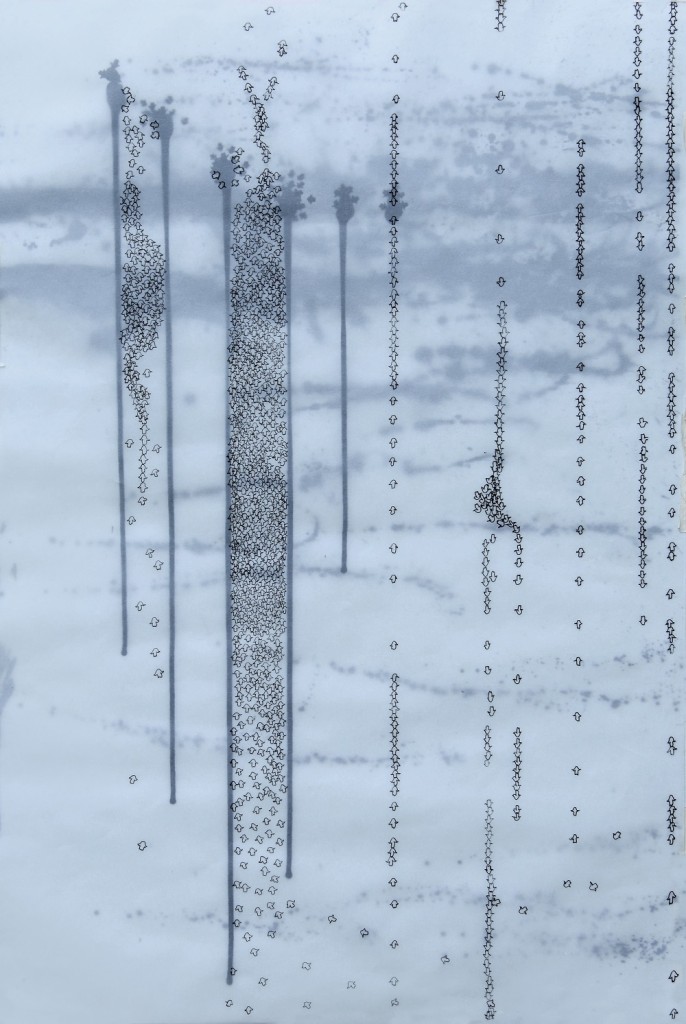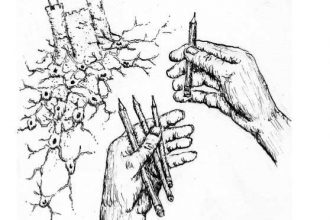
Wax Formation 7, by Komal Aijazuddin
This text was part of a talk given by Emma Villazón at the 20th International Feria de Libro in La Paz. The complete Spanish version can be read on the blog Hay Vida en Marte.
Now I’ll answer the question about the golden age of poetry in Bolivia and contemporary poetry. If by “golden ageâ€Â we mean a time when many poets produced great work, this might be the ‘30s, with Ricardo Jaimes Freyre, Gregorio Reynolds, Franz Tamayo, Arturo Borda, Hilda Mundy, Raúl Otero Reiche and Gamaliel Churata. That period seems a fruitful and interesting one, since there was a conjunction between the effervescence of political ideas of the left, avant-garde aesthetics of modernism, and indigenous Andean vein of Churata. Perhaps one could also talk of another interesting period: the decades from the ‘50s to the ‘80s, when Jaime Saenz, Oscar Cerruto, Edmundo Camargo and Blanca Wiethüchter wrote.
But thinking in terms of a golden age is complicated, because it can introduce nostalgia for a past time better than the present, and encourage the idea each period has its corresponding poet, which creates rivalries between the old and the new. In our case for example, some readers prefer Ricardo Jaimes Freyre and reject Saenz, or the opposite, considering Saenz a great poet and therefore rejecting modernist poetry. It can also happen that some poets, with a self-defensive attitude regarding their own work, propose killing predecessors like Saenz. But are these battles authentic? I’ll respond with what Marina Tsvetaeva said about the rivalry between old Pushkin and modern Mayakovsky:
The statement ‘I love poetry but not contemporary poetry’ and its opposite ‘I love poetry but only contemporary poetry’ are equivalent, that’s to say, worth little or nothing. No one (…) who loves poetry would talk like this, no one who truly loves poetry would destroy the authentic works of yesterday — and forever — to benefit what’s authentic today (…). Whoever loves only one thing doesn’t love anything. Pushkin and Maiakovsky would’ve been friends, in reality were never in conflict. The inferior are hostile to one another, the summits — always in agreement. ‘Beneath the heavens there’s enough room for all’ — the mountains know this better than anyone.
As for the poetry written today in Bolivia, there’s been an increase in poetry readings, which didn’t exist a few years ago. In La Paz I know of the “Escándalo en tu barcaâ€Â series organized by Adriana Lanza, in Cochabamba, the ones at Café Kafka, and in Santa Cruz those organized at La Calleja and the Feria del Libro. In Cochabamba, the publishers Género Aburrido and Yerba Mala Cartonera publish poetry, and the Chilean poet Juan Malebrán has directed a workshop for years, a great motivation for many young people. There’s no doubt this increase in public readings is positive; sharing poetry in public is necessary and will always be welcome.




